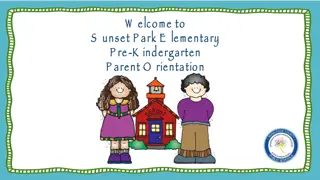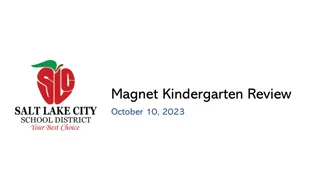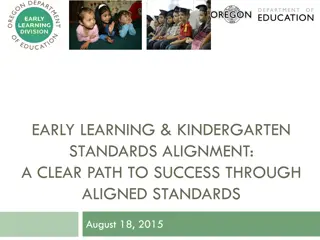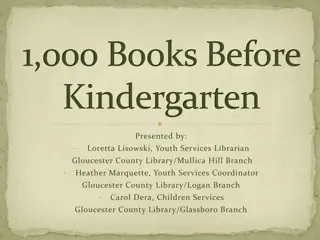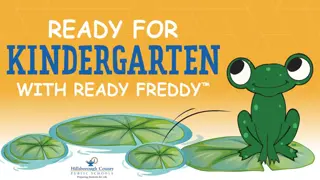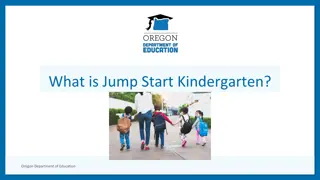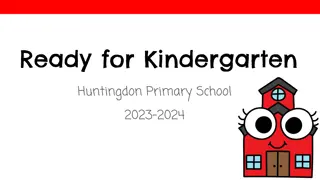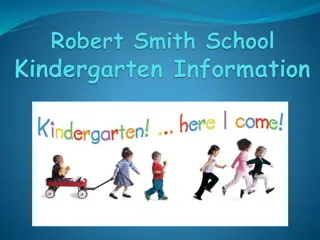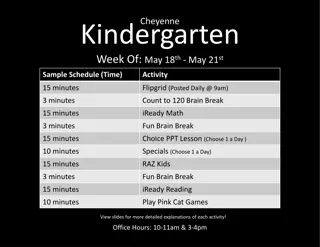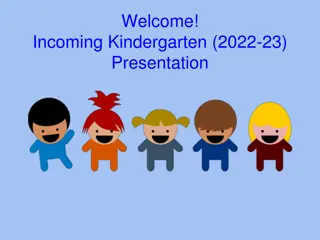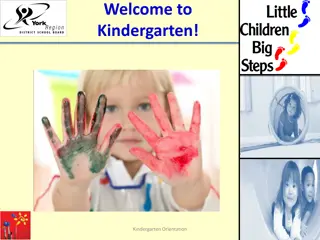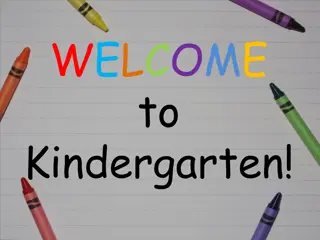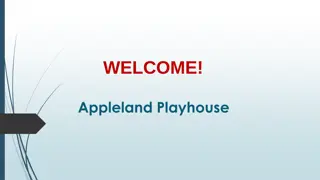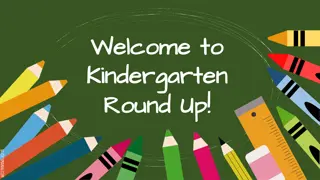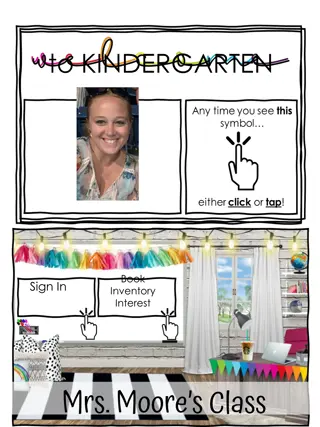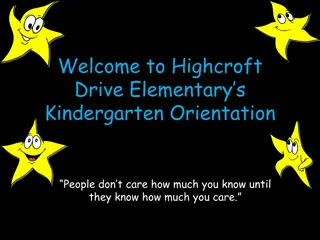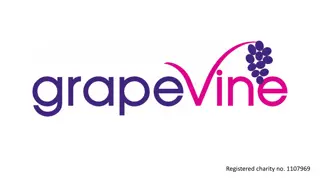Getting Ready for Kindergarten: A Comprehensive Guide for Parents
Equip yourself with valuable insights on preparing your child for kindergarten, focusing on important areas such as gross and fine motor skills, social-emotional development, language proficiency, and independence-building activities like bathroom routines. Discover practical tips on introducing letters, numbers, nursery rhymes, and school readiness skills in a fun and engaging manner. Strengthen the partnership between home and school to ensure a smooth transition to kindergarten.
Download Presentation

Please find below an Image/Link to download the presentation.
The content on the website is provided AS IS for your information and personal use only. It may not be sold, licensed, or shared on other websites without obtaining consent from the author. Download presentation by click this link. If you encounter any issues during the download, it is possible that the publisher has removed the file from their server.
E N D
Presentation Transcript
Ready, Set, Go! Preparing for Kindergarten
Kindergarten Today Kindergarten today may look different from when you were young Parents are their child's first and most important teacher Partnership between home and school is essential
Gross and Fine Motor Skills It is not Time to build big and small muscles. Social Emotional ALL about Time to build skills to get-along with others, taking turns, interacting with peers in a respectful way, dealing with emotions in an appropriate way. academics! Oral Language By 4 year old, most people should understand your child most of the time. By 5 years old, children should be able to talk in 4-5 word sentences and use the same grammar as the rest of the family! Can your child get their needs and wants met through language?
Bathroom and hand washing Leaving Mom and Dad Building Independence Undressing and dressing Being able to ask for help Eating a snack independently
Exposure to letters Alphabet Alphabet songs Skills Books about the alphabet Start off slow Experience is the goal, not mastery just yet! Keep it fun!!
Exposure to numbers Recognize the differences between a number and a letter Number Knowledge Number songs Books about numbers Start off slow Oral counting to 31 Experience is the goal, not mastery just yet! Play board games, dice games and counting games.
Nursery rhymes Language Skill Development Interacting with books Rhyming games and songs Rhyming books Conversation Play with words and language Finger play songs Leisure Guide and Winnipeg Public Library programs Play dates
Recognize name in print School Readiness Skills Try to print name Interest in exploring letters and numbers Ability to sit and listen and attend for 5 10 minutes Follow one step directions Scissors, glue, pencil, and colouring skills Board games, card games, dice game & pen and paper games (tic tac toe)
A correct pencil grip is necessary to support printing and other fine motor skills. This skill is very important in Kindergarten as it reflects future work.
The two simplest ways to get your child s school year off to a great start are Start The School Year Off Right! 1. Consistent daily attendance 2. Arriving at school on time to line up with their classmates outside (community)
Classroom learning is 80% visual 25% of grade school children have vision problems that prevent them from being as successful as they could be. Manitoba Health covers the cost of a vision test.
Speech & Language, Occupational Therapy and Physiotherapy Services If your child is currently receiving any pre-school services such as Speech & Language, Occupational Therapy or Physiotherapy, please indicate this on your registration form. It is beneficial to programing to share reports with the school.
Screen Time Parents can positively influence children s language, social adaptive skills, sleep patterns, and behaviours by setting limits on family screen time. Source: Michelle Ponti MD; Canadian Pediatric Society https://cps.ca/en/documents/position/screen-time-and-preschool-children
Model Healthy Screen Time Prioritize shared family media use (watch TV or movies together, play video games together). Encourage and participate in activities unrelated to screens, such as shared reading, outdoor play, easy board games, and crafts. Turn off devices during family time at and away from home. Turn off screens when not in use and avoid background TV.


